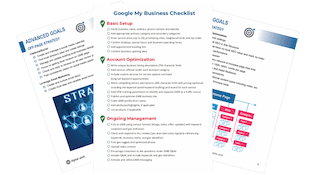What You Need to Know about Mult-Domain SSL Setup
Thinking of Switching to a Multi-Domain SSL?
Do you have an SSL on your sub domain and want one for your main domain, or vice versa? Understand the requirements and constraints of multi-domain SSLs. You need to read this.
Unless you planned in advance, chances are that when you purchased your SSL you bought only what you needed. In most cases this would be a single domain SSL. Single domain SSL are very affordable and most do the job, but they are not very flexible if your needs change or you want to do more. At the time of your original SSL purchase, you may have needed the SSL for your main domain (yourname.com) or only a sub domain (subdomain.yourname.com). In this case the single domain SSL will do the trick. Let's assume that you bought an SSL for a sub domain and now you want one for your main domain. There are certain things you need to be aware of before you make a new SSL purchase or making changes to your system.
One IP Address per cPanel Account
cPanel only allows one Private IP per account and each SSL requires a Private IP. This is the most common cPanel setup.
If you already have an existing SSL certificate being used on a sub domain (i.e. for a billing system, payment portal, or sharepoint, etc. ) you need to replace it because your sub domain is using the only IP address available in your cPanel.
How to Get Around the Single IP cPanel limit?
To get this to work, you need to discontinue using your current single domain SSL and upgrade to a multiple domains SSL. With the new SSL you can work within the limits of cPanel. (Remember, only one IP allowed per CPanel account). You use the single IP for your multiple domains SSL.
One IP Address per SSL
Since cPanel only allows one private IP per account and each SSL requires a private IP, we can achieve our objective of having an SSL on our sub domain and main domain by using a multiple domains SSL. A multiple domains SSL will allow you to use an SSL for your sub domain and main domain because it works within the parameters of the system. One IP address is used for the SSL and the SSL works for both the sub domain and main domain.

